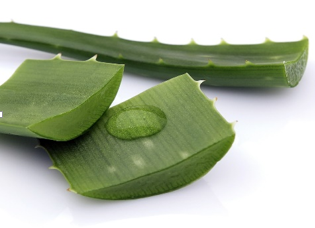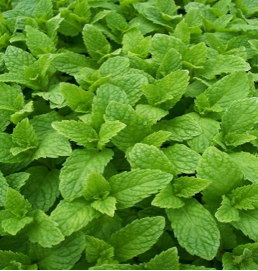Introduction
The Polycystic ovary syndrome (PCOS) is commonly disorders in females that associated with hyperandrogenism and disturb in ovulation process in women’s.1 Due the high level of androgen in women, the acne, alopecia, hirsutism, obesityand other related disorders are mostly seen.2 Typically, the PCOS is indirectly related to the hyper-secretion of luteinizing hormone and androgens. After recently research, observe the various physiological changes in women ovaries according to researchers.3 According to American research, the afflicts 15% women that suffered with type 2 diabetes mellitus (type 2 DM) and cardiovascular disease but after some time it’s shown symptoms of PCOS in their reproductive years.4 PCOS, particularly hyperandrogenism, is highly heritable, according to twin and genomic studies. A member of the TGF-ß superfamily that codes for the extracellular matrix protein fibrillin 3 is the most reliable PCOS gene candidate.5 Even in close male relatives, the allelic fibrillin variation A8 is associated to PCOS and shows a unique metabolic profile, including insulin resistance.6 PCOS in the vitro studies of theca cells showing intrinsically increased androgen biosynthesis and expression of several steroidogenic enzymes, Ovarian hyperandrogenism is the cardinal feature of PCOS.7
Types
The PCOS are categorized into 4 main types-
The PCOS is hormone related disorder and this affect the irregular periods.
Insulin Resistant of PCOS: In this case prevent of the insulin level decreased ability to manage sugar level in body. Due to high level of sugar, directly decreased the level insulin. It’s a main cause of insulin resistant of PCOS.
Inflammatory of PCOS: In this types of PCOS, the inflammatory effect are shown in the body, like inflammation in digestive organ, e.g. irritable bowel syndrome (IBS), joint pain, skin problem. The hsCRP test are useful for detecting the Inflammationlevel in body.
Post pills of PCOS: You may have the post-pill variety of PCOS, if your periods were normal before using hormonal birth control and you now fulfill the diagnostic criteria for PCOS. If you had PCOS symptoms prior to starting the pill but never received a formal diagnosis, it's possible you had the condition before starting the pill.
Hidden cause of PCOS: The various other pathological cause of PCOS are hidden which includes thyroid disease because hypothyroidism affects ovulation and due deficiency of Vit. D, zinc, or iodine because your ovaries need these nutrients, or elevated prolactin because it can increase DHEA.
Genetic predisposition
Genes like CAPN10, Cytochrome family p450, Insulin gene, AR, FTO, FSHR have been discussed. According to very recent research involving almost 30,000 women, genetics may play a part in whether or not you develop PCOS. 3.4% of women whose mothers had PCOS will also be diagnosed with PCOS later in life, while only 0.6% of women whose mothers did not have the disorder will receive this diagnosis9
Insulin level
Insulin is a hormone generated by the pancreas that helps cells to consume sugar, which is your body's main source of energy. Your blood sugar levels may rise and your body may create more insulin if your cells grow resistant to the effects of insulin.
Excess androgen
The androgen are produced from ovaries high level, and result of androgen realese high level hirstuism and acne.10
Ayurvedic treatment of PCOS
Aloe-vera
(Botanical Name-Aloe barbadensis, Family-Liliacea)
Aloe Vera is a medicinal plant, Aloe Vera plant various use in medicinal use such as, skin glow, improves digestive health, moisturizing and cooling properties and PCOS etc.
The efficiency of Aloe vera gel formulation in a PCOS rat model was investigated in this study. To generate PCOS, five-month-old Charles Foster female rats were orally administered letrozole, a non-steroidal aromatase inhibitor. The rats were subsequently given the Aloe vera gel formulation orally (1 ml dose daily for 45 days). Their estrus cyclicity, glucose sensitivity, and steroidogenic activity were all restored as a result of this. The formation of the PCO phenotype was inhibited by combining the inductive agent (letrozole) with the Aloe vera gel. By restoring ovarian steroid status and modifying important steroidogenic function, aloe vera gel formulation protects against the PCOS phenotype.11
Cinnamon
(Botanical Name-Cinnamomum zeylanicum, Family: Lauraceae)
Cinnamon is a medicinal plant. Cinnamon plant is many medicinal uses, contain antioxidant, redues blood pressure and pcos etc.
In vitro and in vivo studies have revealed that cinnamon extract reduces insulin resistance by boosting phosphatidylinositol 3-kinase activity in the insulin signalling pathway and thereby potentiating insulin action. For eight weeks, fifteen women with polycystic ovarian syndrome (PCOS) were given either daily oral cinnamon or a placebo.12
Spearmint tea
(Botanical Name: Mentha spicata, Family: Labiates)
Mentha spicata is medicinal plnt. Mentha plant is use many medicinal uses sach as gastrointestinal disorders, stomach ache and pcos etc.
Free and total testosterone levels and degree of hirsutism were reduced over the 30-day period in the spearmint tea group. LH and FSH were increased. It was demonstrated and confirmed that spearmint has anti androgen properties. The study was conducted in two centres in Turkey as a 30-day randomised controlled experiment. For one month, 42 individuals were randomly assigned to drink spearmint tea twice a day or a placebo herbal tea.13
Life style modification
A. Exercise treatment of PCOS — The exercise very help to treatment of pcos. The goal of the study was to see if 5 weeks of voluntary exercise in the Estradiol Valerate (EV)-induced PCO rat model influenced ovarian shape and the expression of sympathetic markers. The effect of exercise on.
MRNA and protein expression of nerve growth factor
MRNA and number of ovarian-expressing cells for the NGF
Ovarian morphology
In adult rats cycle, PCO was produced by a single intramuscular injection of EV, while controls were treated with oil alone.19
Dietary intake treatment of PCOS
In women with PCOS, a low glycemic index diet may help manage insulin resistance, cardiovascular risk, and irregular menstruation cycles. Consumption of saturated fats should be avoided. In women with polycystic ovarian syndrome, lifestyle change, including effective exercise regimes and food guidance, should be the primary line of treatment.20
Conclusion
Women with PCOS are more prone to develop hypertension and cardiovascular disease as a result of metabolic syndrome, in addition to anovulation and infertility. Clinical examination is the most common method of diagnosing PCOS. Because the aetiology of PCOS is unknown, therapy is limited to managing the signs and symptoms. To better understand the pathophysiology of PCOS and the development of high blood pressure in women with the illness, more study is needed.



